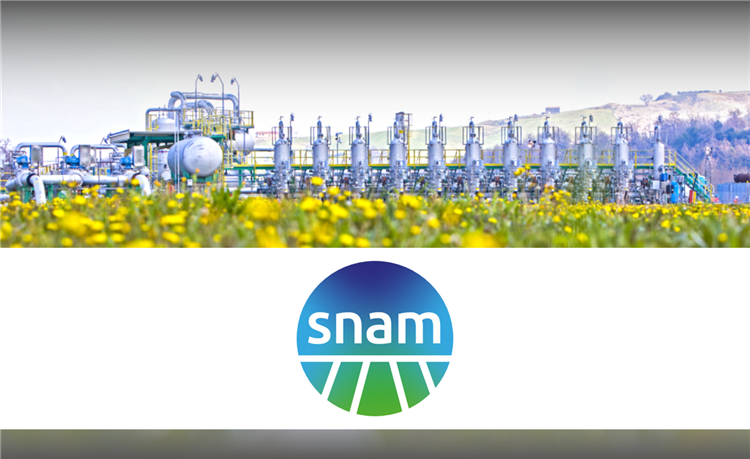 Italy’s Snam Rete Gas, as part of a consortium including also Global Infrastructure Partners (GIP), Brookfield Asset Management, GIC (Singapore’s sovereign wealth fund), Ontario Teachers’ Pension Plan and NH Investment & Securities, has acquired 49% of Adnoc Gas Pipelines. The latter manages 38 gas pipelines that connect Adnoc’s upstream activities to the Abu Dhabi consumption points and to the export and interconnection terminals to the neighboring Emirates (see the press release here). The seller, Abu Dhabi National Oil Company (Adnoc), will retain the remaining 51% of Adnoc Gas Pipelines. The completion of the acquisition, which is expected to be completed in July 2020, is subject to the usual conditions precedent for this type of transaction.
Italy’s Snam Rete Gas, as part of a consortium including also Global Infrastructure Partners (GIP), Brookfield Asset Management, GIC (Singapore’s sovereign wealth fund), Ontario Teachers’ Pension Plan and NH Investment & Securities, has acquired 49% of Adnoc Gas Pipelines. The latter manages 38 gas pipelines that connect Adnoc’s upstream activities to the Abu Dhabi consumption points and to the export and interconnection terminals to the neighboring Emirates (see the press release here). The seller, Abu Dhabi National Oil Company (Adnoc), will retain the remaining 51% of Adnoc Gas Pipelines. The completion of the acquisition, which is expected to be completed in July 2020, is subject to the usual conditions precedent for this type of transaction.
For the consortium, of which Snam represents the only industrial operator and the only Italian company, this is an important investment opportunity in a strategic energy infrastructure. The transaction, one of the most important ever in the global energy infrastructure sector and the first acquisition of Snam outside Europe, evaluates 100% of Adnoc Gas Pipelines around 20.7 billion dollars (10.1 billion dollars for 49%). The consortium obtained around 8 billion dollars in funding from a pool of international banks. The equity contribution is distributed proportionally between the members of the consortium, who all hold equal shares with the exception of the leader GIP. For Snam, in particular, the disbursement with its own funds will be approximately 250 million dollars.
Sultan Al Jaber, UAE Minister of State and ceo of Adnoc, said: “We are delighted to forge a new partnership with some of the world’s leading institutional and infrastructure investors in the region’s most important energy infrastructure transaction. This historic operation testifies to the trust of the international financial community towards Adnoc and creates significant value from our infrastructure activities, after last year’s innovative operation on our oil pipelines. The investment confirms the strong interest in Adnoc’s valuable assets and constitutes a further reference for large investments in energy and infrastructure in the United Arab Emirates and in the region. Finally, the agreement consolidates Adnoc’s role as an attractive partner and strengthens our country’s position as a destination for international investments, even in the presence of an unprecedented context “.
Snam ceo Marco Alverà said: “With this strategic agreement, we are strengthening our international presence by entering a central country and region in the energy sector, further consolidating Italy’s role in the Gulf area. Our goal is to promote further collaboration opportunities, in particular in the energy transition. We will work with Adnoc and the consortium partners by leveraging our industrial skills and our innovative solutions in infrastructure management to make a contribution to the energy system of the Emirates. We have concluded this agreement by working entirely remotely in recent months, testifying to Snam’s resilience and its strong determination to continue the growth path of recent years “.
Snam is one of the world’s leading energy infrastructure companies and one of the largest Italian listed companies by capitalization. Through its international subsidiaries, it operates in Albania, Austria, China, France, Greece and the United Kingdom. First in Europe for its natural gas transmission network and storage capacity, the company is also among the main operators in regasification. As part of a 6.5 billion euro plan in 2023, Snam invests 1.4 billion in the SnamTec project aimed at innovation and the development of new businesses for the energy transition, from sustainable mobility to biomethane and energy efficiency. Snam also aims to enable and promote the development of hydrogen to encourage the decarbonisation of the energy sector and industry.
Adnoc is one of the main diversified energy and petrochemical groups in the world. With 14 specialized subsidiaries and joint ventures, it is one of the most important growth and diversification catalysts in the United Arab Emirates.


